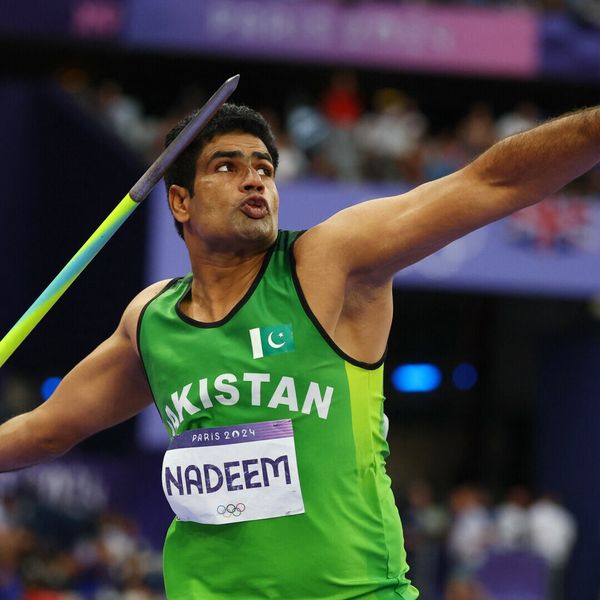The rise of Kho Kho in Pakistan
Pakistan's players were unable to participate in the Kho Kho World Cup in India after being denied visas.

Kulsoom Jahan
Sports Correspondent
Kulsoom Jahan is a driven and accomplished professional with a passion for sports, news, storytelling, and in-depth fact-gathering. With eight years of experience in the sports media industry, she has honed her skills in conducting insightful interviews, crafting compelling narratives, and delivering high-quality content. Known for her ability to meet deadlines well in advance, Kulsoom is meticulous in her attention to both video and audio details, ensuring excellence in every project she undertakes. Her dedication and expertise make her a valuable asset in the ever-evolving world of sports media.
Who among us didn't spend their childhood chasing, dodging, and laughing with friends in a game of Kho-Kho? This timeless classic, etched in the memories of generations, once dominated the streets and alleys of Pakistan.
With its roots deeply embedded in the subcontinent's rich cultural heritage, Kho-Kho's nostalgic charm continues to captivate hearts while reminding us of the simple joys of childhood.
Recently, Kho-Kho has experienced a resurgence, gaining international recognition, with the inaugural Kho Kho World Cup in India.
Pakistan was expected to be part of the World Cup but they couldn’t travel to India after being denied visas due to political tensions between the two nations.
The tournament kicked off without Pakistan on January 13, featuring 20 men’s and 19 women’s teams. The quarter-finals for the women's team will take place on January 17, with the semi-finals scheduled for January 18. The final for the women's competition will be held on January 19. While the absence of Pakistan is a setback, Kho-Kho’s growing popularity and its international expansion remain key highlights of this year’s World Cup.
Meanwhile, in Karachi, the excitement surrounding the game reached new heights with the first-ever college-level Kho Kho Championship. Students from various colleges participated enthusiastically, making it a memorable event at the Abdullah College for Women.
One player shared, “Though I had heard of Kho-Kho before, this is my first time playing. I’m truly enjoying the experience!”
Another player, when asked about the risk of falling or getting injured, confidently replied, “We’re not afraid of falling or getting hurt. It’s all part of the learning process.”
Batool Kazim, the Director of Physical Education at Abdullah College for Women, spoke about Kho-Kho’s growing appeal.
“The response has been overwhelmingly positive since the game was officially introduced two years ago. Sindh, in particular, has witnessed a surge in Kho-Kho tournaments, with girls showing a keen interest in the sport.”
She emphasized that Kho-Kho requires no special equipment or large playing areas, making it an ideal game for promoting fitness and community engagement.
What is Kho Kho?
Similar to the children’s playground game of tag, Kho Kho is a traditional sport played in South Asia which has existed in some form or the other for thousands of years.
The present version of Kho Kho, played by individuals on foot, originated in 1914 at the time of the first World War.
Pune’s Deccan Gymkhana club first came out with formalized rules and regulations for Kho Kho. These gave the sport a structured look.
Kho Kho, along with other indigenous sports like kabaddi and mallakhamb, was demonstrated on the sidelines of the 1936 Berlin Olympics.
Kho Kho was also demonstrated during the 1982 Asian Games in New Delhi and the first-ever Asian Championship was held in Kolkata in 1996. It was also a medal sport at the South Asian Games 2016 in Guwahati.
Currently, almost 25 countries have their national Kho Kho teams.
How to play Kho Kho
Like tag, the objective of Kho Kho is to tag or hunt down an opponent and score points. However, it is bound by a strict set of rules rather than being a free-for-all playground game.
A senior international Kho Kho match has two innings separated by a brief break. Each innings has two turns, lasting nine minutes each, where teams alternate between chasing and defending. The team with the most points at the end of the two innings wins the match.
If the teams are tied at the end of the match, an additional innings is played to decide the winner. If there's still no definite winner, both teams take a turn each and the side to win one point in the least amount of time is the winner.
A Kho Kho team has nine players. There are, however, 12 players in each Kho Kho team, the remaining three can be brought on as substitutes.
(with inputs from Olympics.com)











Comments
See what people are discussing